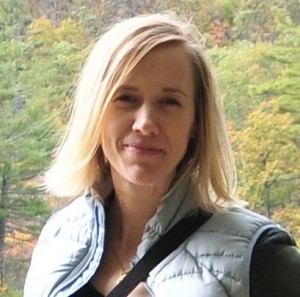Dr. Elsie Sunderland
Human Exposure to Mercury: Why does Global Biogeochemistry Matter
Mark and Catherine Winkler Assistant Professor of Aquatic Sciences at Harvard University
Elsie M. Sunderland is faculty member at the Department of Environmental Health in the Harvard School of Public Health. Dr. Sunderland also works with the Atmospheric Chemistry Modeling Group at Harvard’s School of Engineering and Applied Sciences. She received a B.S. with Great Distinction in Environmental Science from McGill University. Dr. Sunderland continued her education at Simon Fraser University, achieving a Ph. D. in Environmental Toxicology that focused on developing a model for marine mercury cycling. In the past, Dr. Sunderland has worked in environmental policy and regulations, spending five years as a Senior Staff member on the Environmental Protection Agency’s Council for Regulatory Environmental Modeling. She has also worked as a Research Associate at the Harvard School of Engineering and Applied Sciences.
Dr. Sunderland’s research focuses on understanding how the fate, transport and bioaccumulation of chemicals affect human and environmental health. She uses a combination of field studies and modeling for analysis.
Dr. Sunderland’s work has been honored through many awards including U.S. EPA Level II Scientific & Technological Achievement (STAA) Award (2010), “Outstanding Reviewer” citation by Editorial Board of Estuaries and Coasts (2010), U.S. EPA Highest Level (Level I) Scientific & Technological Achievement (STAA) Award (2008), U.S. EPA National Honor Award, Gold Medal for Exceptional Service (2005), Society of Environmental & Chemistry best student paper presentation award (2002) and many others.
Discussion with Dr. Sunderland

Leave a Reply